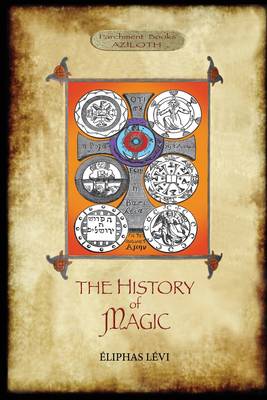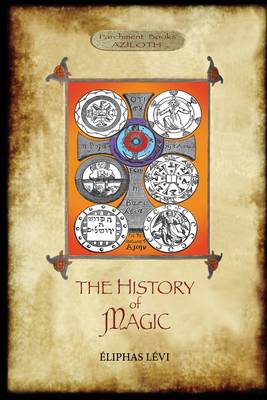
- Retrait gratuit dans votre magasin Club
- 7.000.000 titres dans notre catalogue
- Payer en toute sécurité
- Toujours un magasin près de chez vous
- Retrait gratuit dans votre magasin Club
- 7.000.0000 titres dans notre catalogue
- Payer en toute sécurité
- Toujours un magasin près de chez vous
The History of Magic
Including a clear and precise exposition of its procedure, its rites and its mysteries. Translated, with preface and notes by A. E. Waite. Original illustrations. Revised and extended index by Aziloth Books.
Éliphas LéviDescription
As a comprehensive work on magic through the ages, The History of Magic, is hard to beat.
Éliphas Lévi was born in poverty in 1810, the son of a Parisian shoemaker. His early associations with the Christian Catholic Church were ambivalent because of his interest in "the Secret Doctrine" - Magic. His voice as a magus emerged in Transcendental Magic, its Doctrine and Ritual, published in 1855-56, followed by The History of Magic (1860), where he combines his belief in both magic and religion. Recognised as the occult scientist of the 19th century, Lévi has left a valuable legacy in his writings.
The present work is divided into a septad of books - based on the sacred number, seven - with seven chapters in each. Lévi begins with a clear definition of magic - "the exact and absolute science of Nature and her laws" and these laws, conforming always to an ideal state of equilibrium, are governed by a supreme intelligent principle, God. Throughout the book the author emphasizes the inseparability of science and religion and that magic is part of both, but he is at pains to denigrate Black magic and counterfeit magicians. He charts magic through the ages, from its early origins to the 19th century occult revival, in which he played a major part. We read about Zoroaster, Abraham, the magic of the Magi, Hermetic magic, Kabalism, Gnosticism, Freemasonry - and much else besides. According to Lévi, the Secret Doctrine was eventually passed down to the Roman Catholic Church of which he became a faithful member. However, he admitted this revered institution had lost the Kabalistic Keys and his life's work was to direct their rediscovery that these powerful tools may be applied to our lives, albeit only within the confines of the hierarchical Church.
Occult historian and author in his own right, A. E. Waite provides a valuable adjunct to Levi's book with his preface and detailed notes. The original index has been revised and extended by Aziloth Books.
Spécifications
Parties prenantes
- Auteur(s) :
- Editeur:
Contenu
- Nombre de pages :
- 360
- Langue:
- Anglais
Caractéristiques
- EAN:
- 9781913751012
- Date de parution :
- 08-10-20
- Format:
- Livre broché
- Format numérique:
- Trade paperback (VS)
- Dimensions :
- 156 mm x 234 mm
- Poids :
- 503 g

Les avis
Nous publions uniquement les avis qui respectent les conditions requises. Consultez nos conditions pour les avis.






